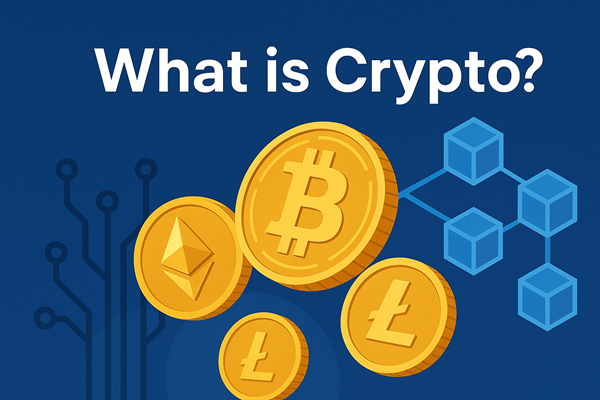Best Crypto Wallet for Africa Emerging Markets in 2026
Best Crypto Wallet for Africa 2026 – Emerging Market Guide – Discover the top crypto wallets for Africa in 2026. Compare Luno, Trust Wallet, Binance, and Paxful for secure trading, remittances, and DeFi.
Best Crypto Wallet for Africa Emerging Markets in 2026
Cryptocurrency adoption across Africa has been nothing short of phenomenal. Countries like Nigeria, Kenya, South Africa, and Ghana are leading the charge, with millions of users engaging in trading, remittances, and decentralized finance (DeFi). According to Chainalysis, Africa has seen a triple-digit growth in crypto adoption over the past five years, largely due to financial inclusion challenges, mobile banking penetration, and increasing interest in digital assets.
As crypto use skyrockets, choosing the right crypto wallet becomes critical for security, access, and efficiency. Whether you’re a beginner, trader, or enterprise, the wallet you choose can impact your overall crypto experience.
Why Crypto Wallets Are Vital in Africa
Africa presents a unique financial landscape. Traditional banking access remains limited in rural areas, and high transaction fees often hinder cross-border remittances. Crypto wallets solve these challenges by providing:
- Secure storage of digital assets like Bitcoin, Ethereum, and altcoins.
- Low-cost international transfers, bypassing traditional banking systems.
- Access to DeFi protocols, enabling yield farming, staking, and lending.
- Integration with mobile money solutions like M-Pesa, Airtel Money, and MTN Mobile Money.
A well-designed wallet ensures that users can store, trade, and manage digital assets safely while accessing global financial opportunities.
Factors to Consider When Choosing a Crypto Wallet in Africa
Before selecting a wallet, consider these critical factors:
- Security: Multi-layered security features, including two-factor authentication (2FA), biometric authentication, and cold storage options.
- Multi-Currency Support: Wallets should support major cryptocurrencies (BTC, ETH, BNB, USDT) and emerging altcoins.
- Fiat On/Off Ramps: Integration with African currencies like NGN, ZAR, KES, GHS for easy deposits and withdrawals.
- Mobile Accessibility: Most African users rely on smartphones; a mobile-first interface is essential.
- Ease of Use: Beginners need simple navigation, easy setup, and clear instructions.
- P2P Integration: Peer-to-peer trading features help facilitate local crypto trades and remittances.
- DeFi & NFT Support: For advanced users, wallets should allow interaction with dApps, staking, and NFT marketplaces.
Top Crypto Wallets for Africa (2026)
1. Binance Wallet
Features:
- Supports multiple African fiat currencies.
- Integration with Binance P2P for low-fee trading.
- Multi-chain support, including Bitcoin, Ethereum, BNB, and Layer 2 solutions.
- Mobile and desktop accessibility.
Why It’s Best for Africa: Binance Wallet provides robust security and a full-featured trading ecosystem, making it ideal for both beginners and experienced traders. With P2P trading, users can buy and sell crypto using local currencies directly, avoiding expensive banking fees.
2. Luno Wallet
Features:
- Local currency support for Nigeria (NGN), South Africa (ZAR), Kenya (KES).
- Easy fiat-to-crypto conversion.
- Beginner-friendly mobile app.
- Competitive fees and fast transactions.
Why It’s Best for Beginners: Luno Wallet offers a simple and intuitive interface that is ideal for newcomers. Its integration with local banks and mobile money allows seamless deposits and withdrawals, making it one of the most popular wallets in Africa. Visit – https://www.luno.com/
3. Trust Wallet
Features:
- Multi-chain support including Layer 2 solutions and major blockchains.
- Mobile-first design suitable for smartphone users.
- Built-in DApp browser and staking options.
- NFT support and DeFi access.
Why It’s Best for Active Traders: Trust Wallet caters to users who want access to DeFi platforms, staking opportunities, and NFTs. Its mobile interface is optimized for African users relying on smartphones for daily transactions.
4. Paxful Wallet
Features:
- Peer-to-peer (P2P) trading integration.
- Mobile-friendly and beginner-oriented.
- Supports Bitcoin and stablecoins like USDT.
- Local currency integration for easier payments.
Why It’s Best for Remittances: Paxful Wallet shines in cross-border P2P trading, making it ideal for African users who send and receive money internationally. Its focus on local payments ensures high usability for day-to-day transactions.
5. Binance Smart Chain Compatible Wallets
Features:
- Supports BSC assets and DeFi protocols.
- Low network fees, perfect for micro-transactions.
- Mobile and desktop accessibility.
Why It’s Best for DeFi Traders: BSC-compatible wallets allow users to participate in yield farming, staking, and NFT trading with lower fees compared to Ethereum, making them highly attractive in cost-sensitive emerging markets.
Key Advantages of Using Crypto Wallets in Africa
- Financial Inclusion: Crypto wallets give access to digital financial services without traditional banking.
- Low Transaction Fees: Reduce costs for cross-border remittances compared to conventional banking.
- Asset Security: Wallets with advanced security measures protect users from fraud and theft.
- DeFi and Staking: Users can earn passive income through decentralized finance.
- Global Access: Wallets allow participation in international crypto markets.
Common Challenges and How Wallets Solve Them
| Challenge | Wallet Solution |
|---|---|
| High banking fees | P2P trading and crypto transfers with minimal fees |
| Limited banking access | Mobile-first wallets for smartphone use |
| Security risks | Hardware wallets and multi-sig wallets provide safe storage |
| Lack of DeFi access | Multi-chain wallets support staking, yield farming, and NFTs |
| Currency volatility | Stablecoins (USDT, USDC) are supported for hedging |
FAQs – Best Crypto Wallets for Africa 2026
- Which crypto wallet is safest in Africa?
Ledger hardware wallets and Trust Wallet provide top-tier security. - Can I use local currency with these wallets?
Yes, Luno, Binance, and Paxful support multiple African currencies. - Are P2P wallets legal in Africa?
Yes, as long as transactions comply with local regulations. - Which wallet is best for beginners?
Luno and Paxful Wallet are beginner-friendly with simple interfaces. - Do these wallets support DeFi?
Yes, Trust Wallet and BSC-compatible wallets allow DeFi interactions. - Can I stake crypto using these wallets?
Yes, Binance, Trust Wallet, and BSC wallets allow staking. - Are transaction fees high?
Binance Smart Chain wallets have low fees; Bitcoin fees may vary. - Can I send crypto internationally?
Yes, these wallets facilitate cross-border transfers and remittances. - Are NFTs supported?
Yes, wallets like Trust Wallet support NFT storage and trading. - Do I need a smartphone to use these wallets?
Yes, mobile accessibility is crucial in Africa.
How to Choose the Right Wallet for Your Needs
- For P2P Trading & Remittance: Paxful Wallet
- For Multi-Chain DeFi Trading: Trust Wallet or Binance Wallet
- For Beginners & Fiat Access: Luno Wallet
- For Maximum Security: Ledger Nano + Ledger Live
- For Cost-Effective DeFi & NFTs: BSC-Compatible Wallets
Final Words
The African crypto market in 2026 is booming, and the right wallet is crucial for security, usability, and access to global financial opportunities. By using wallets like Binance, Luno, Trust Wallet, and Paxful, users in emerging markets can store, trade, stake, and send crypto efficiently.
Investing in a reliable crypto wallet ensures financial inclusion, low-cost remittances, and access to DeFi opportunities.
For AI-powered crypto predictions and market insights tailored for Africa, visit coin-predictions.com



